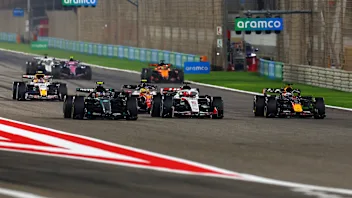Cool but clear and sunny conditions greeted the teams on the second day of pre-season testing. The focus? Reliability, reliability, reliability. That means laps – and plenty of them – rather than lap times were the main focus as the field pounded round the Circuit de Barcelona-Catalunya….
More good news for Ferrari
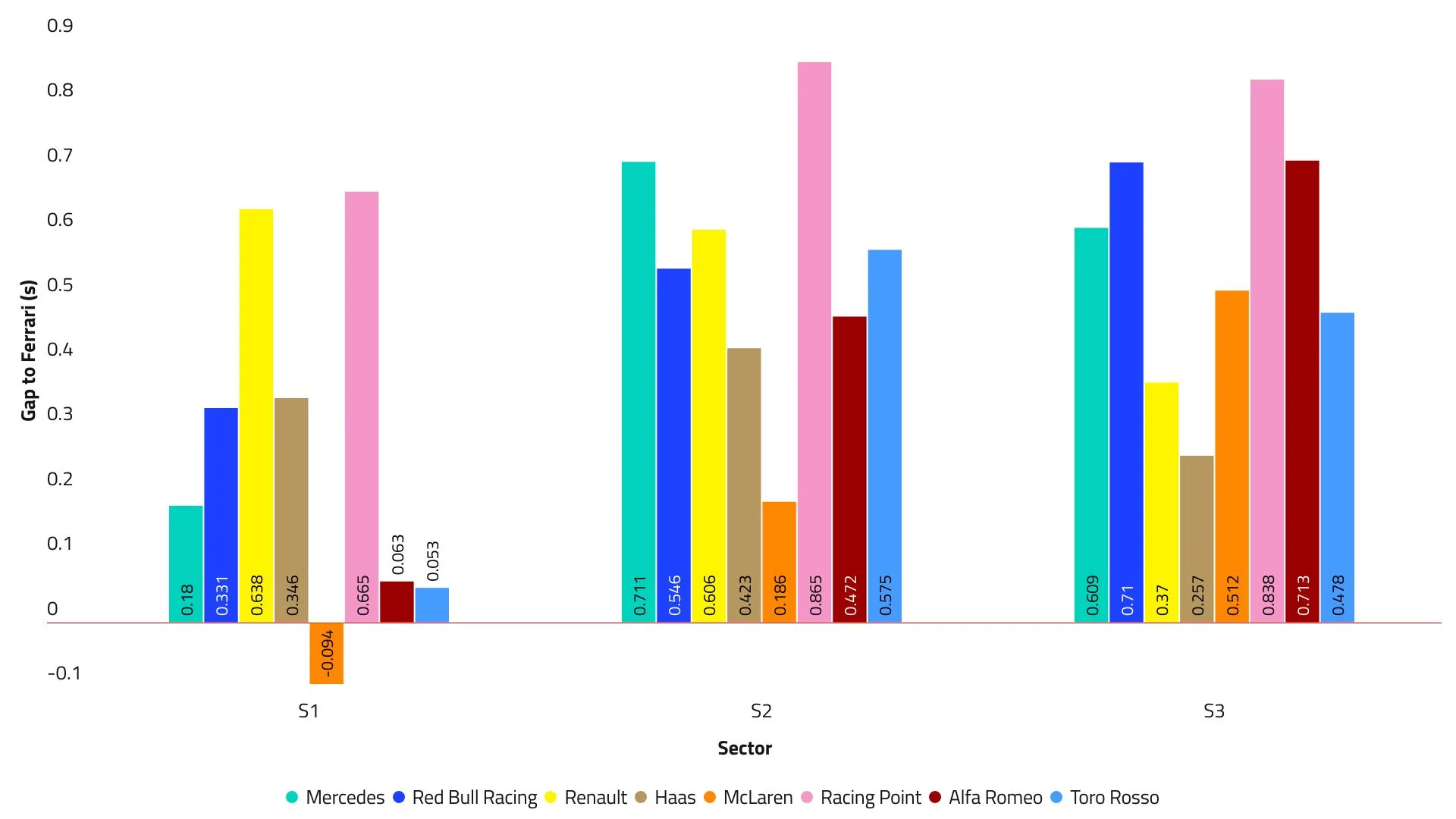
Once again, we’ve looked at the three best sectors set by each team on Day 2 – not necessarily from the same lap or same driver – to give us an indication of the strengths and weaknesses of each team.
On Monday, Ferrari painted the town red with their performance across the board and they provide the baseline for today’s offering after another very impressive showing.
The Scuderia were pipped by 0.094s by McLaren’s Lando Norris in the first sector, but that deficit would be wiped out if you adjust for the fact Norris was on the soft tyre while Leclerc was on the medium.
The Prancing Horse then stretched its legs in the second sector, increasing the gap to McLaren to 0.186s. And that ballooned to more than half a second in the final, slower sector. Here, Haas were Ferrari’s biggest threat, but they were still a quarter of a second adrift.
What of their rivals Mercedes? Well, Lewis Hamilton and Valtteri Bottas’ combined best sectors were 0.18s, 0.711s and 0.609s off Ferrari’s pace, but we shouldn’t read too much into that as the Silver Arrows rarely show their true speed in week one.
The bars don’t make great reading for Racing Point, with the team slowest of all in all three sectors.
Renault hit the top
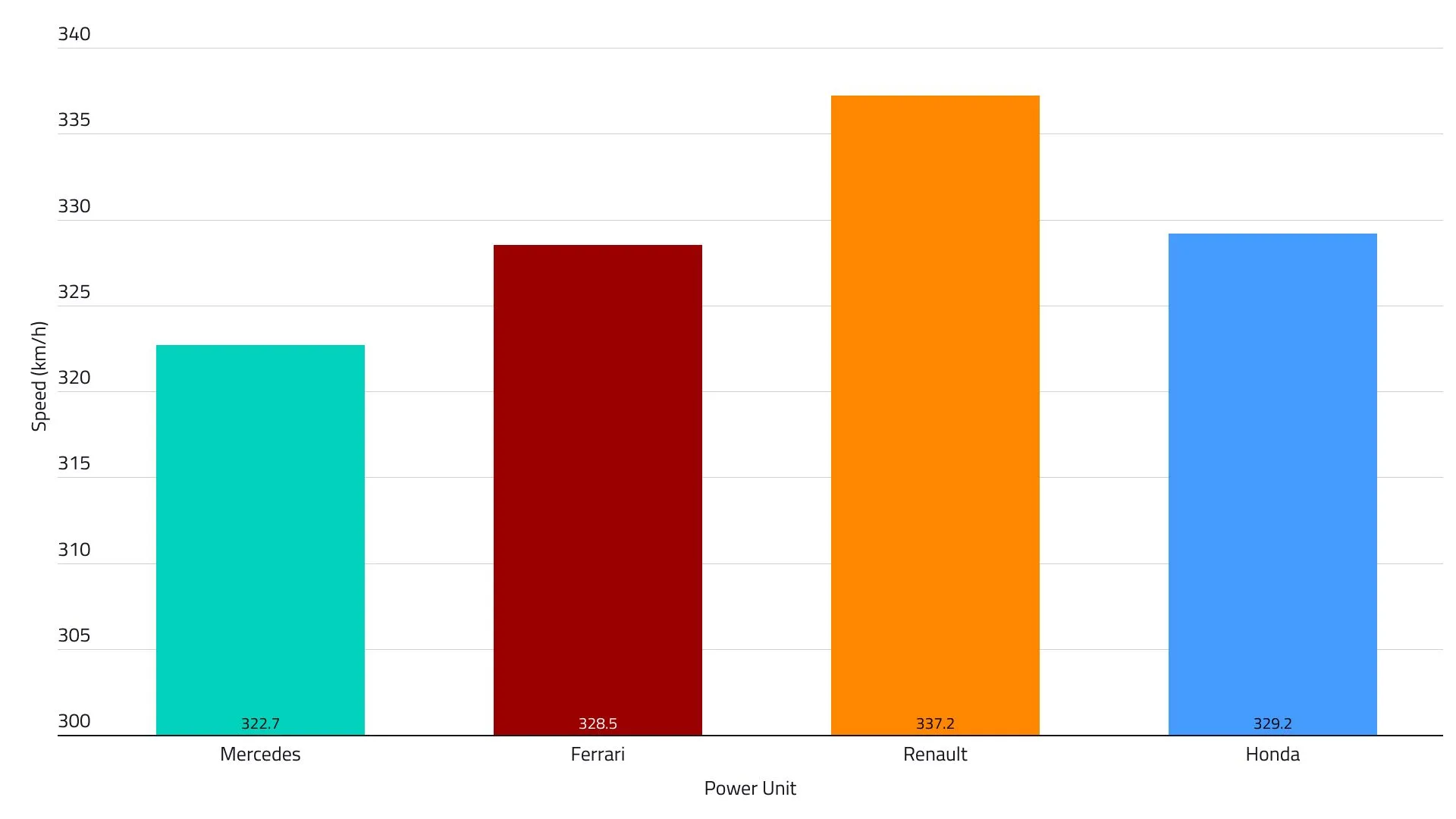
Honda’s time at the head of the speed trap stakes lasted just a day as Renault surged to the top on the second day of running, with the Renault-engined McLaren the best performing of those power units in terms of ultimate pace, as Lando Norris ended the day second quickest overall.
Honda slipped to second overall, 8km/h adrift of Renault, but the Japanese manufacturer’s engine chief Toyoharu Tanabe stressed on Tuesday that their focus was reliability – not performance – in week one.
Ferrari were third overall, with Mercedes bottom of the pack, but then there’s a caveat again – no one will be running their PUs close to full strength. That joy won’t come until next week.
Ferrari kings of engine data gathering
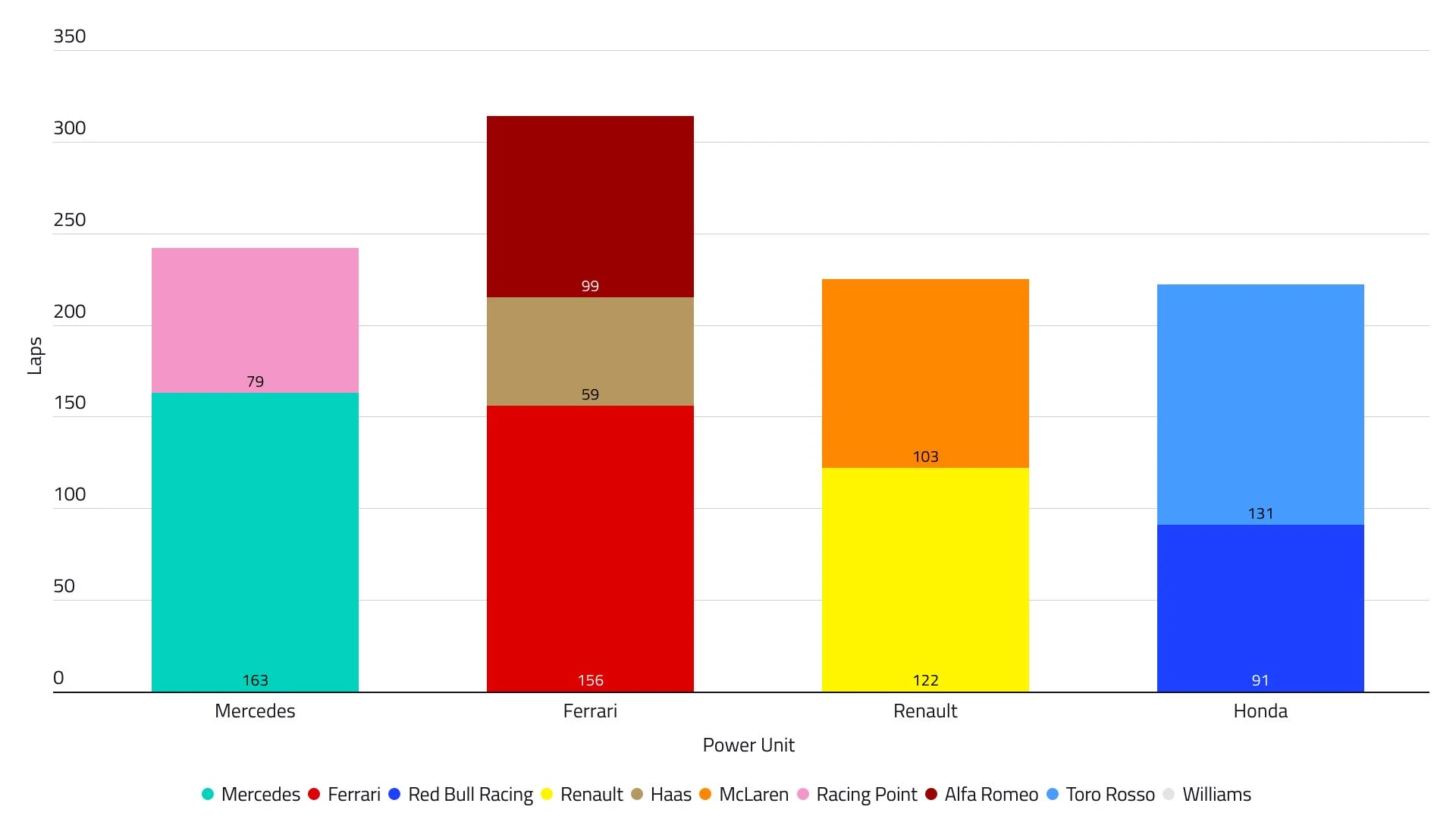
The engine mileage charts make for good reading for all four manufacturers on day two of the test, with each of the quartet managing at least 200 laps to clock up the data and help prove reliability.
As will frequently be the case, due to Ferrari having three cars running their engine thanks to two customers (Haas and Alfa Romeo) compared to two for Mercedes (Mercedes and Racing Point with Williams currently absent), Renault (Renault and McLaren) and Honda (Red Bull and Toro Rosso), it was the Italian team who came out on top, breaking the 300 barrier for the second successive day.
But Mercedes could see a hike in their figures tomorrow if the new Williams arrives in Barcelona and the team are able to get the car out on track at last. Watch this space.
Ferrari quick and consistent
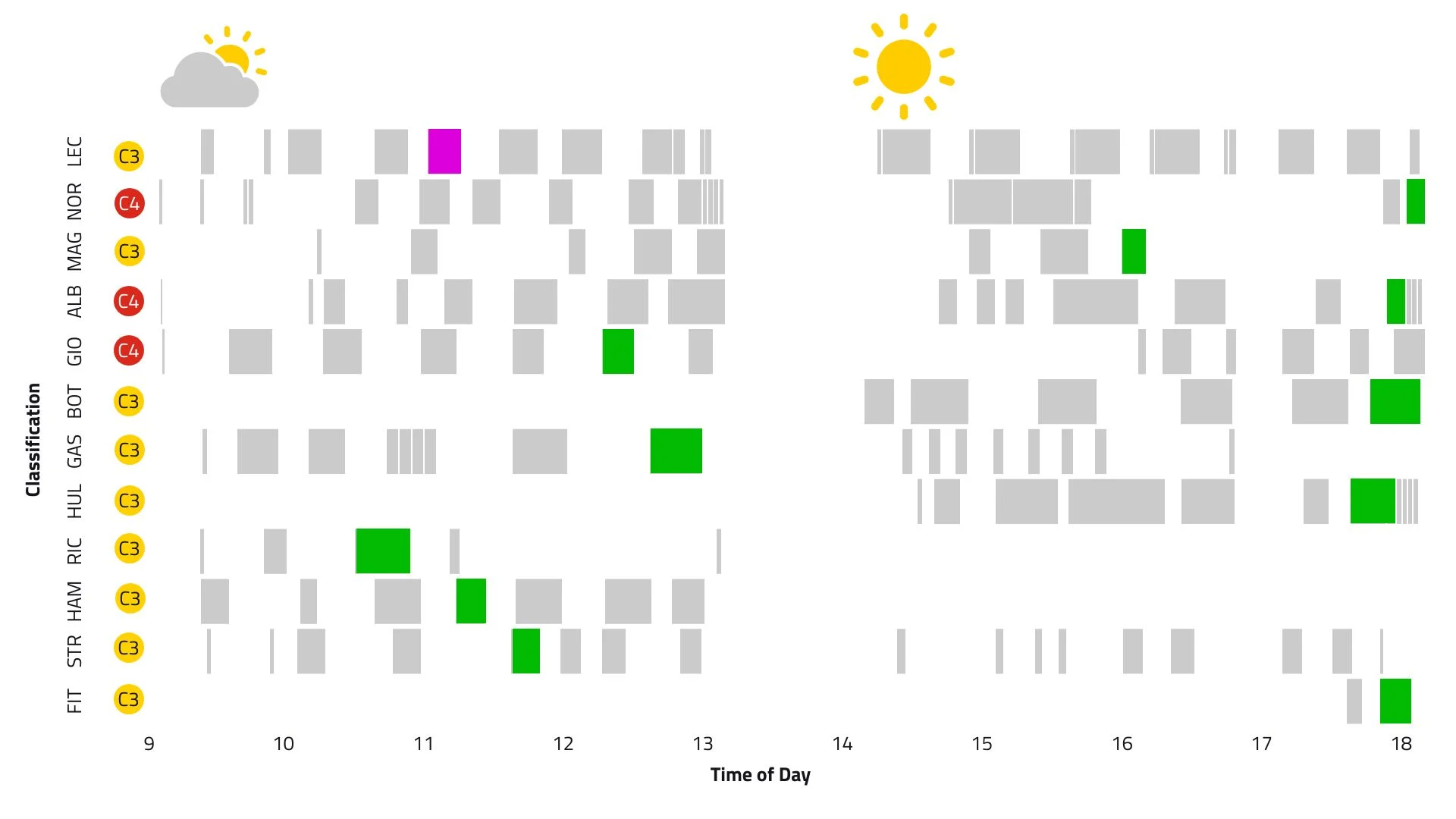
Barcelona is F1’s favoured testing venue, as its demanding layout – with a mix of medium- and high-speed corners and just two slow turns - provides the perfect test bed for teams to assess the relative strengths and weaknesses of their shiny new cars.
As you can see from our performance stint graph, which marks out the number of laps each driver completed in a run, when their fastest lap was completed and the conditions at the time, Ferrari – with Charles Leclerc at the wheel - emerge not only with the fastest time for the second successive day, but also a high number of short and frequent runs. Mercedes achieved a similar feat with their frequency and stint length.
The graph also marks out clearly the amount of time Renault lost, for example, when Daniel Ricciardo suffered a DRS failure that confined him to the garage for almost half the session.
In the afternoon, it’s clear Ricciardo’s team mate Nico Hulkenberg was able to complete a race simulation, the German running the longest stint length of anyone.
In contrast, Lance Stroll, who is also believed to have had DRS issues all day, had a more stuttered afternoon, complete a series of very short runs for Racing Point.
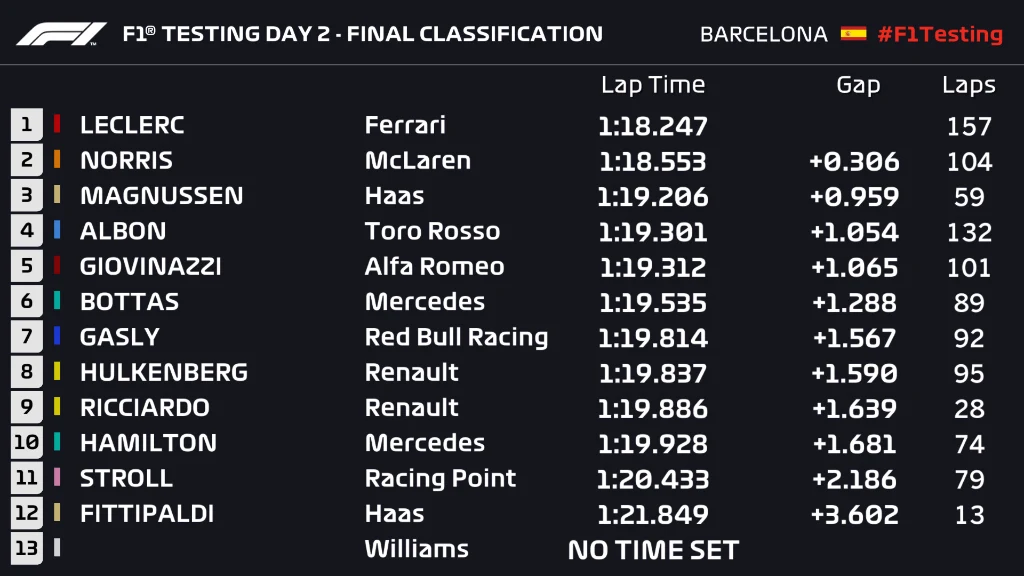
Next Up


.webp)



